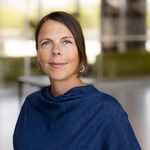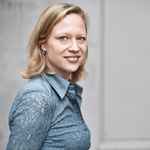The Netherlands to Build the World's First Population Macroscope to Track Social Change, Misinformation, and Trust
3 November 2025

The Netherlands is investing €16.8 million to answer questions like these. The Netherlands Organisation for Scientific Research (NWO) has awarded funding to build the Macroscope—the world's first population-level research infrastructure designed to observe and understand how societies change over time.

The research infrastructure provided by the Macroscope will open new and exciting paths to conduct innovative, groundbreaking and socially impactful research in many areasProf. Christa Boer
The Netherlands is investing €16.8 million to answer questions like these. The Netherlands Organisation for Scientific Research (NWO) has awarded funding to build the Macroscope—the world's first population-level research infrastructure designed to observe and understand how societies change over time.
Coordinated by Erasmus University Rotterdam and in partnership with the University of Amsterdam, the Macroscope is a collaborative initiative by two major Dutch research infrastructures: ODISSEI, focused on social science and economic data, and CLARIAH, which houses cultural and linguistic archives.
The Macroscope will allow researchers to securely link and analyse massive datasets spanning social, cultural, and digital domains across the entire Dutch population. The project unites 14 Dutch universities with leading institutes, including Statistics Netherlands (CBS), Centerdata, SURF, the Netherlands eScience Center, the Instituut voor de Nederlandse Taal, DANS, the National Library (KB), the Netherlands Institute for Sound and Vision (B&G), and the KNAW Humanities Cluster.
From Cells to Societies: A New Lens on Social Change
'Just as the microscope revealed the hidden world of cells, the Macroscope can help reveal the hidden dynamics of societies,' said Dr. Tom Emery, Principal Investigator and Executive Director of ODISSEI (Open Data Infrastructure for Social Science and Economic Innovations). 'For the first time, we will be able to observe how ideas, languages, and inequalities percolate across an entire population—safely, ethically, and collaboratively.'

The scalable research that the Macroscope infrastructure allows for, offers a unique, longitudinal perspective on how issues of culture and identity interact with social questionsProf. Julia Noordegraaf
Understanding complex social dynamics requires both scale and security. To study how trust develops in a society, researchers need to see how media coverage impacts people's opinions, and how shifts in those opinions influence friends, colleagues, and neighbours. This type of complexity demands an instrument with the scale of a Macroscope.
'The Macroscope is an outstanding collaboration between the Social Sciences and the Humanities and will allow us to zoom in and out to study how our culture, language, and institutions change over time.' noted Prof. Susan Aasman, Co-Principal Investigator and Director of CLARIAH.
University of Amsterdam and the Macroscope
The Macroscope will empower UvA researchers to address crucial research questions, develop new theories and interventions. 'Our researchers are working to understand and help address various complex, interconnected societal challenges, from the climate crisis to social inequalities, or the rise of misinformation to how we interact with AI. The research infrastructure provided by the Macroscope will open new and exciting paths to conduct innovative, groundbreaking and socially impactful research in these and many more areas', says Prof. Christa Boer, dean of the Faculty of Social and Behavioural Sciences. 'The scalable research that the Macroscope infrastructure allows for, offers a unique, longitudinal perspective on how issues of culture and identity interact with social questions', adds Prof. Julia Noordegraaf, vice-dean of research of the Faculty of Humanities.
The UvA will not only benefit from the research infrastructure delivered by the Macroscope but will also help building it. Professor Jessica Piotrowski will lead the development of the Macroscope Analytical Toolbox, which will enable Social Science and Humanities researchers to integrate diverse datasets and employ cutting-edge analytical techniques for advanced research and evidence-based policy making. Professor Theo Araujo will lead the development of the Netherlands Media Corpus together with the National Library of the Netherlands (KB). This corpus will integrate the vast and dynamic array of media in all its forms and formats into a collaborative, dynamic ecosystem that is more sustainable, interoperable, and agile. In addition, several UvA researchers from the Social Science and Humanities domain will provide expertise to the project, such as Professor Eelke Heemskerk and his contributions to the analysis of longitudinal, large-scale population networks.
Built for Researchers, Secure by Design
Researchers work in highly secure environments where they can analyse sensitive pseudonymized population data for approved purposes but never copy or remove it. This protects privacy while enabling research.
The Macroscope consists of four integrated components: secure data vaults, unified data sources bringing together surveys and archives, AI tools developed and evaluated for research, and a public access portal for researchers and citizens alike.
This balance between computational power and data protection reflects the broader challenge the Macroscope addresses: enabling cutting-edge research while maintaining public trust.
Tackling Society's Pressing Questions
Once fully operational in 2030, the Macroscope will empower researchers to address critical societal challenges—from understanding the spread of misinformation and erosion of social trust, to tracking the evolution of language and media, and analysing the long-term effects of demographic change.
'The Netherlands has built world-leading infrastructures for research,' said Prof. Daniel Oberski, Co-Principal Investigator and Scientific Director of ODISSEI. 'The Macroscope connects them—giving us, quite literally, a new lens on society.'